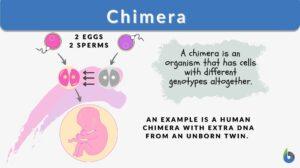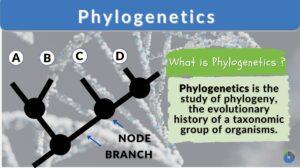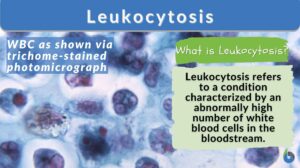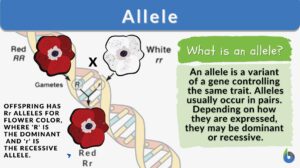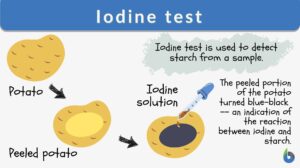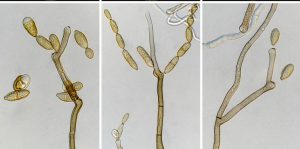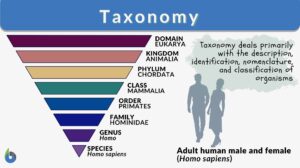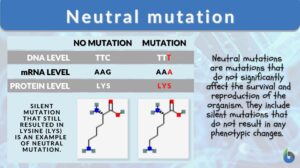Search Results for: identification
Identification
Identification (Science: psychology) An unconscious defense mechanism by which an individual endeavors to pattern himself... Read More
The consequences of antibiotic use in horticulture
Leading articles Frederick R. Falkiner* Department of Clinical Microbiology, Trinity College, Dublin; Central Pathology... Read More
Phagocytosis
Phagocytosis Definition Phagocytosis is a basic physiological cellular process wherein a cell ingests a solid particle... Read More
Phylogenetics
Phylogenetics Definition Phylogenetics is the scientific study of phylogeny. It studies evolutionary relationships among... Read More
Leukocytosis
What Is Leukocytosis? Leukocytosis is a condition wherein the number of White Blood Cells (WBCs) is increased above the... Read More
Iodine test
Iodine Test Definition The iodine test is a chemical reaction-based identification test for starch. In this test, iodine... Read More
Cladosporium species in indoor environments
Cladosporium is a fungus that mostly found in indoor and outdoor molds. It is a species that formed in simple or branching... Read More
Dichotomous key
Definition noun A reference tool where a series of choices between alternative characters leads progressively to the... Read More
Imprinting
What does imprinting mean? Have you watched the TV cartoon show “Tom and Jerry” with an episode of a duck and its... Read More
Pathobiology of allergy and its most severe form, anaphylaxis
When allergy season looms, some people with serious hypersensitivity to allergens tend to be apprehensive of what may come.... Read More
Ecosystem diversity
Ecosystem Diversity Definition What is ecosystem diversity? Ecosystem diversity deals with the study of different... Read More
Dichotomous
Several English words are widely used across different fields of Science. One such term is dichotomous. We often use this... Read More
Reducing sugar
Reducing Sugar Definition What is reducing sugar? The type of sugar that acts as the reducing agent and can effectively... Read More
Community (biology)
Community, in biology, refers to the assemblage of interacting organisms (either of the same or different species)... Read More
Restriction enzyme
Definition noun, plural: restriction enzymes An enzyme that catalyzes the cleavage of DNA at restriction sites, producing... Read More
Blindness – Evolutionary regression? Maybe not!
The recent Netflix's hit flick, Bird Box, surely startled the viewers with the thrilling scenarios revolving around the... Read More
Culture medium
Culture medium a substance, either solid or liquid, used for the cultivation, isolation, identification, or storage of... Read More
Neutral mutation
Neutral Mutation Definition What is a neutral mutation? Neutral mutations are the alterations in the DNA that are... Read More
Ecological Research: Measuring & Analysis
By: Maria Victoria Gonzaga Previously in this lesson, we learned that high biodiversity is essential to a healthy... Read More
Community Patterns
By: Maria Victoria Gonzaga In the previous lesson, we learned what a population is, its attributes, and processes... Read More
Gram-positive cocci
Definition noun, singular: gram-positive coccus A group of spherical bacteria that retains the violet stain following gram... Read More
Dendrology
Definition noun The study of wooden plants such as trees and shrubs Supplement Dendrology is the study of wooden plants. It... Read More
Carcinology
Definition noun A biological discipline that studies crustaceans Supplement Carcinology is a branch of zoology that deals... Read More

